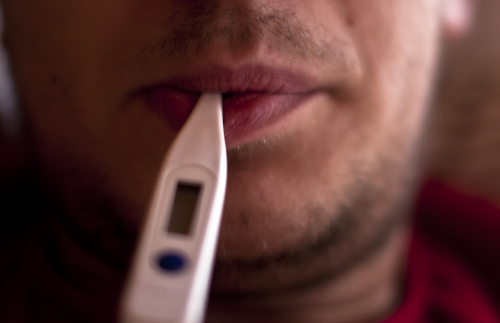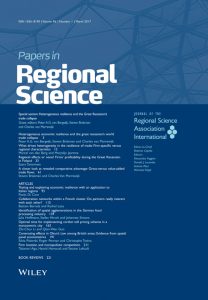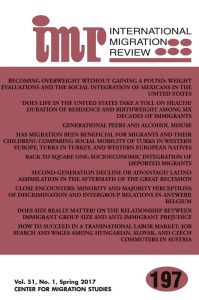The Sociology of Sickness: On Feeling Bad
At the time in which I write this, I have been sick for eight days. I’ve gone through 5 boxes of tissues. Two packs of medicines. Had a fever. Called off a day of work. Gone to the doctor. Slept more than I have probably all year long. Needless to say, this is quite the summer cold. Being sick is no fun, and I’m one to remind everyone around me that it is as such. I complain, I play the victim card, I am essentially helpless. I pretend like I’m going to die, probably because it feels that way. Being sick is no fun because we are not our “normal” selves, we are not healthy, and we are not able to do the things we usually do, at least not the way that we usually do them.
But in a moment of clarity, I wonder to myself, being sick is okay. Maybe our bodies need to be sick in order to rest from the pressure and constraints we put on it everyday to be “healthy.” What is healthy anyways?
When thinking about sickness, I think of two particular pieces of literature that I read in my Feminist Theory course: Garland-Thomson’s “Integrating Disability, Transforming Feminist Theory” and Halberstam’s “Anti-social Turn in Queer Studies.”
Garland-Thomson argues that feminist theory and studies have fallen short when it comes to understanding and including dis/ability. Western thought conceives of disability (which includes invisible disabilities and arguably chronic illness) as a shortcoming and as defective of what is “healthy,” “normal,” and “ideal,” and thus are inferior. As such, people with disabilities become dehumanized, marked bodies: ones that are asexual, infantilized, victimized. She continues arguing that the binary of disability/ability is a cultural construction, and in reality, disability is pervasive and a part of everyday life- not lesser, not other, not abnormal: “disability—like gender—is a concept that pervades all aspects of culture: its structuring institutions, social identities, cultural practices, political positions, historical communities, and the shared human experience of embodiment” (p. 16).
Seemingly unrelated, Halberstam’s article critiques liberal feminism and queer studies that, simply put, hope for a better tomorrow. Halberstam wrote,
We need to craft a queer agenda that works cooperatively with the many other heads of the monstrous entity that opposes global capitalism, and to define queerness as a mode of crafting alternatives with others, alternatives which are not naively oriented to a liberal notion of progressive entitlement but a queer politics which is also not tied to a nihilism which always lines up against women, domesticity and reproduction. Instead, we turn to a history of alternatives, contemporary moments of alternative political struggle and high and low cultural productions of a funky, nasty, over the top and thoroughly accessible queer negativity. If we want to make the anti-social turn in queer theory, we must be willing to turn away from the comfort zone of polite exchange in order to embrace a truly political negativity, one that promises, this time, to fail, to make a mess, to fuck shit up, to be loud, unruly, impolite, to breed resentment, to bash back, to speak up and out, to disrupt, assassinate, shock and annihilate, and, to quote Jamaica Kincaid, to make everyone a little less happy! (p. 154)
In other words, an anti-social turn does not apologize for falling short of normative idealizations of whom a person should be and how they should act within the capitalist, sexist, racist, transphobic, hetero/homonormative framework. Rather, queer studies should dismantle what is thought of as normal and embrace the full spectrum of responses and feelings, rather than just privileging the positive and good ones. Unlike the “everything is awesome” mantra (via the Lego Movie), everything does not have to be awesome. It can make us mad, and frustrated, and upset. Oftentimes that is what makes us want change. Negativity, in this sense, is a political choice not to accept the status quo.
It may be a stretch to say that these two theories explain the physical state of being sick, but they do offer an insight into how I feel about being sick. Yes, I can feel bad about being sick. But, at the same time, feeling bad is not a bad emotion to have. It is a perfectly acceptable emotion that I should feel out, accept, enact on. This negative feeling is what drives me. Being sick itself, on the other hand, while is out of what is normal for me, is not abnormal or bad either. It is my body’s reaction to my environment. It is its rage to the toxic environment that it struggles to survive. In a Garland-Thomson-esque argument, I have begun to realize that my emotions and thoughts surrounding my sick, and my health in general, while maybe only temporary, is a construction made to make me feel less than human. Being sick is real, can put others at risk, but being less than “healthy” doesn’t make me less than human. It’s okay to feel bad, to feel sick. Embrace that. Take that rage to change what it means to be sick, how we get sick, how we heal the sick, what we think of the sick.
Pieces to Read:
Garland-Thomson, Rosemarie. 2002. “Integrating Disability, Transforming Feminist Theory.” NWSA Journal 14(3):1-32.
Halberstam, Judith. 2008. “Anti-Social Turn in Queer Studies.” Graduate Journal of Social Sciences 5(2): 140-156.






1540-6237/asset/SSSA_Logo-RGB.jpg?v=1&s=c337bd297fd542da89c4e342754f2e91c5d6302e)
